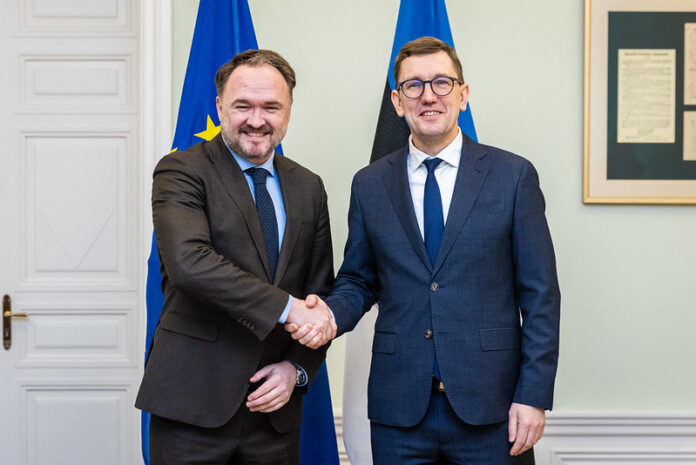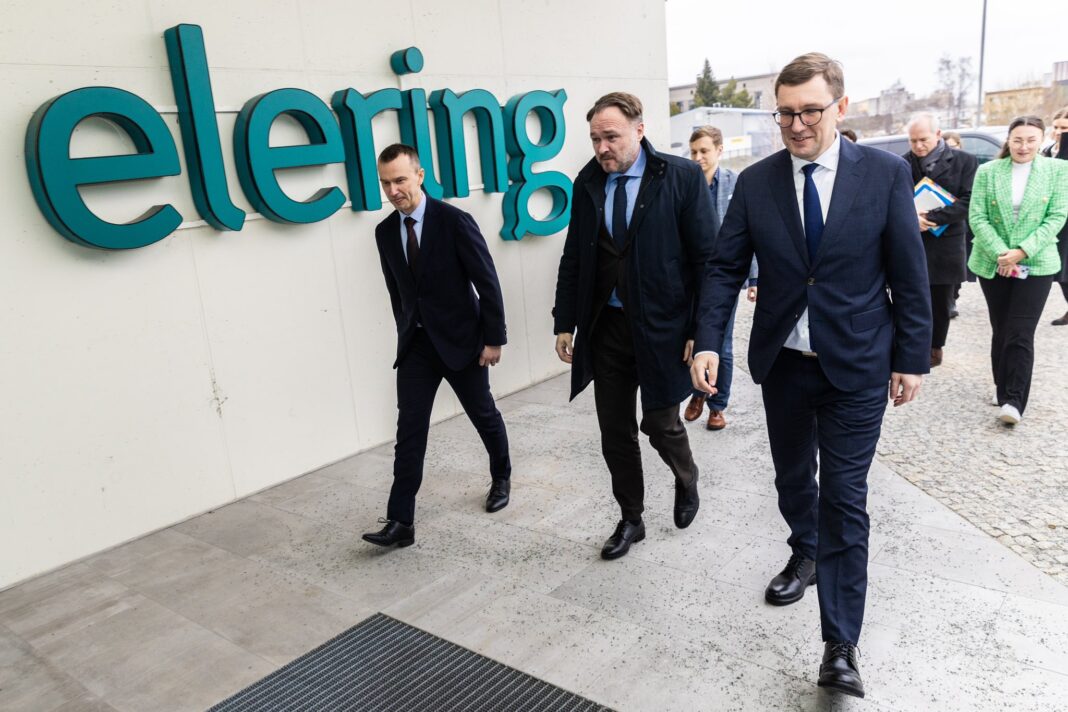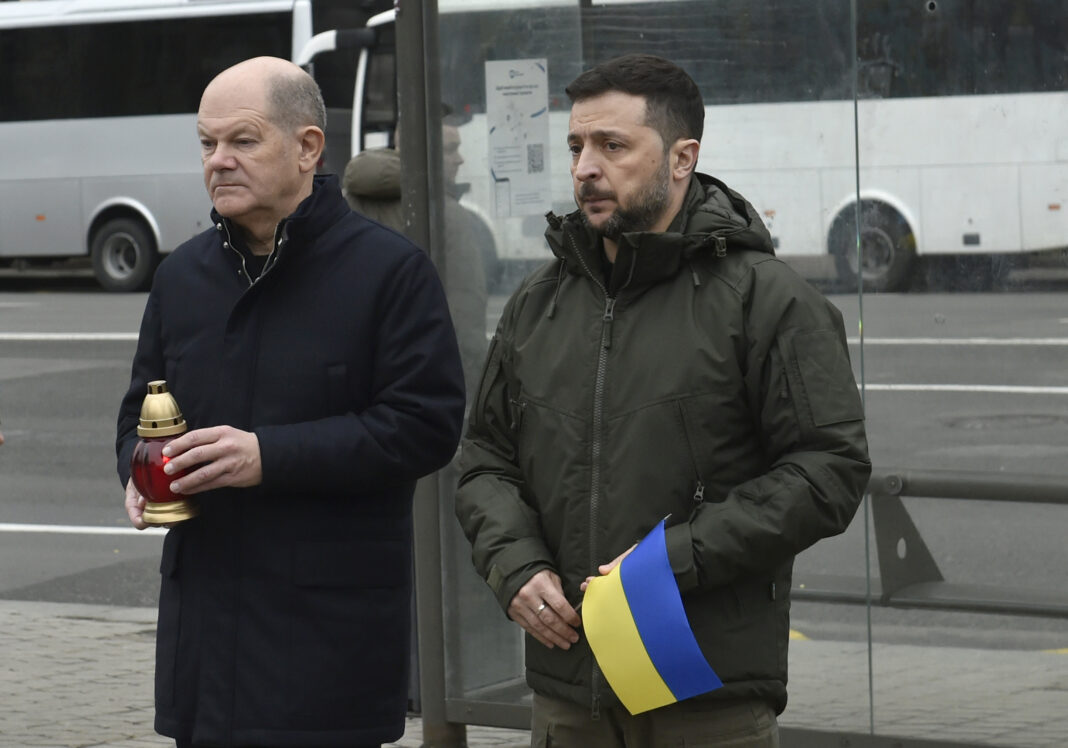Stenbock House, 8 February – Estonian Prime Minister Kristen Michal met with European Commissioner for Energy and Housing Dan Jørgensen. During the meeting, discussions focused on the synchronisation of the Baltic States’ electricity grid with the continental European frequency area, and further cooperation to improve the protection of critical infrastructure. Later they also visited Elering together.
“Today is a landmark day. Estonia, together with Latvia and Lithuania, has disconnected from the Russian frequency band and tomorrow we will synchronise with continental Europe,” Michal emphasised the significance of the timing of the meeting. “While joining Schengen opened the borders of Europe for us to travel, we are now joining the largest frequency band in the world. New markets and products will emerge, expanding opportunities for Estonian electricity producers to sell electricity.”
The Prime Minister added that today’s disconnection from the Russian electricity grid is the result of long-term preparations, which will significantly strengthen the energy security of the Baltic States. “We have invested significantly in our electricity infrastructure and worked closely with our international partners to ensure a smooth transition. The European Commission has played a major role in supporting this process.”
“The synchronisation of the electricity networks of the Baltic States with those of Continental Europe is a historic achievement, even more so in the current geopolitical context,” confirmed the European Commissioner for Energy. “Supported with over EUR 1.2 billion under our Connecting Europe Facility, the Baltic synchronisation is a collective investment to strengthen the security of supply and the energy independence of the entire Union,” he added.
According to Michal, it is important that cooperation in the European Union also deepens in order to improve the protection of critical infrastructure. “We need to increase investments into monitoring and repair capabilities,” he said, referring to recent incidents in the Baltic Sea.
“We will keep working towards a stronger, genuine Energy Union in the EU, where clean, secure and affordable energy drives our competitiveness. And of course, safeguarding and protecting our critical infrastructure from the growing threats we see is a vital aspect for us all,” Jørgensen agreed.
After the meeting at Stenbock House, the Prime Minister and the European Commissioner for Energy and Housing visited Elering together.
Alongside Elering’s CEO Kalle Kilk, they participated in a video meeting with the leaders of electricity system operators from the Baltic States and Poland, discussing the current state of synchronisation and progress of the Baltic electricity network island service test. Latvian Prime Minister Evika Siliņa also joined the meeting via a video link.




